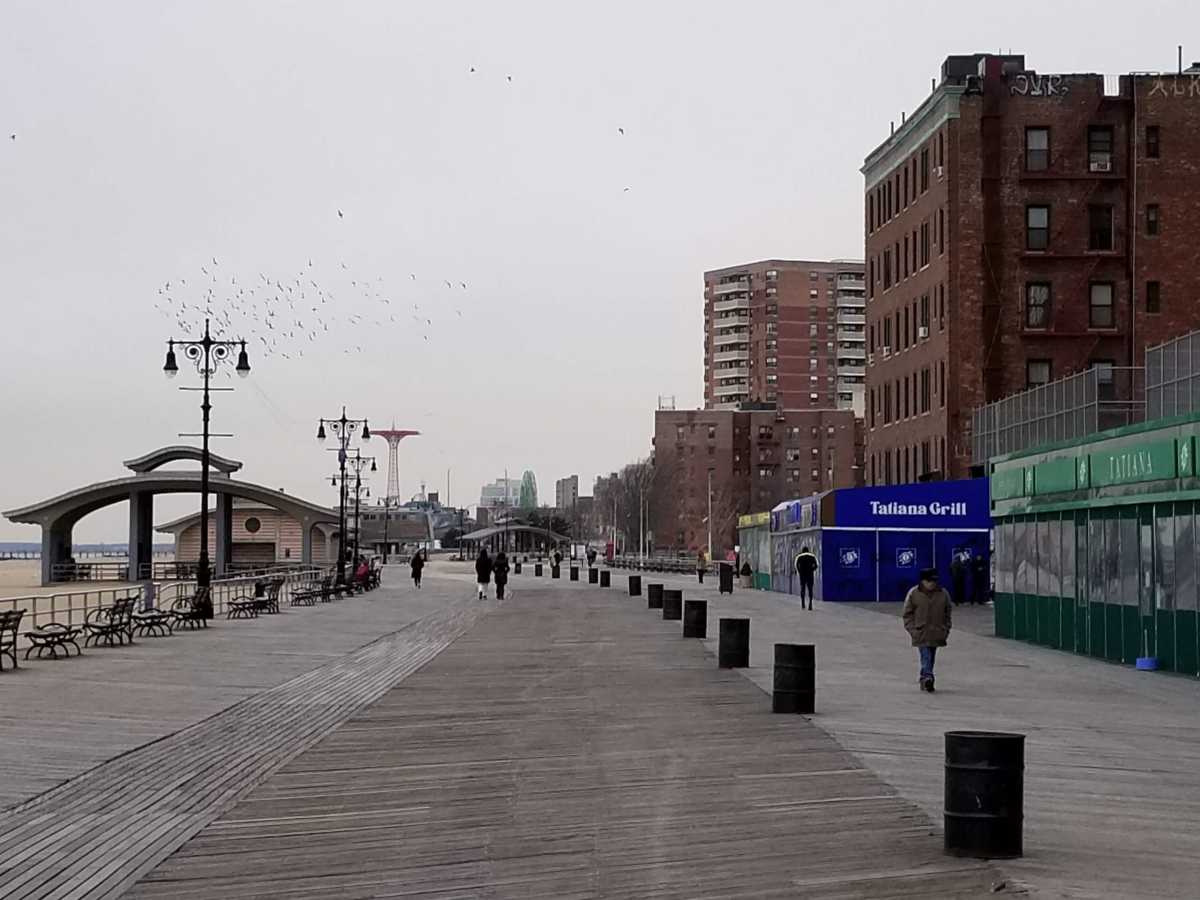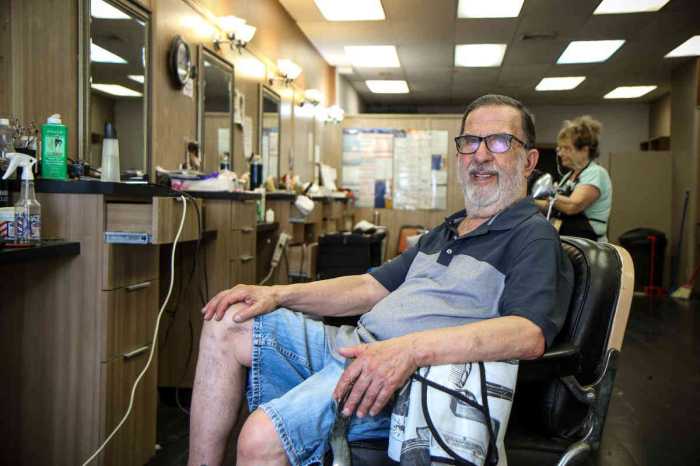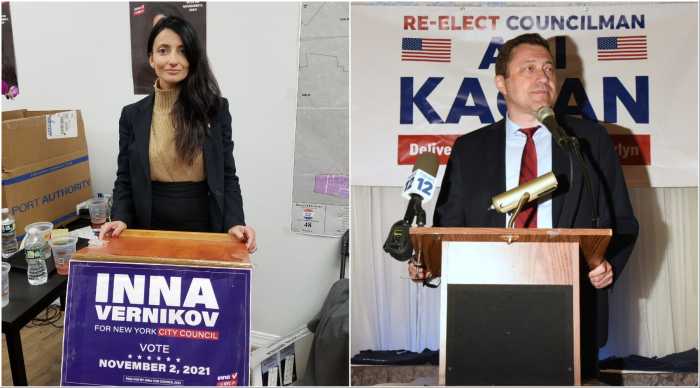As news of the Russian invasion of Ukraine spread throughout the world, the southern Brooklyn enclave of Brighton Beach, which is home to one of the largest Ukrainian populations outside of Eastern Europe, began reeling from the devastating news of their native land under siege.
The southern Brooklyn neighborhood has earned the nickname “Little Odessa,” owing to its population and its perch near the beach, just as the moniker’s Ukrainian namesake.
But now, as photos and newsreels show bombs and Russian troops plundering the former Soviet land, the mood in Brighton Beach has become notably solemn.
President Joe Biden has announced a new round of sanctions on Russia, but that has offered little consolation to the proud people of Ukrainian heritage, who have been forced to watch along helplessly as Russian President Vladimir Putin’s troops have decimated major cities and occupied Ukrainian sovereign territory.
Much of southern Brooklyn’s Ukrainian population, many of whom still have family and friends living in their home land, are desperately trying to reach loved ones, and mostly finding them in a state of shock and confusion.
“I have a lot of friends over there, I have family over there,” said Zachary Shinter, a southern Brooklyn resident who immigrated from Kyiv in 1990. “I spoke one hour ago, many friends say everybody is scared about this, nobody knows what’s going on.”
Shinter says people he knows in Ukraine are taking shelter in underground bunkers as bombs rain down on Kyiv, the Ukrainian capital, and other major cities like Odessa and Kharkiv, all while the military violently marches its way through the country.
It’s unclear how long the conflict could last, but it could easily end up as one of Europe’s deadliest conflicts since the Yugoslav Wars of the 1990s, or worse, since World War II.
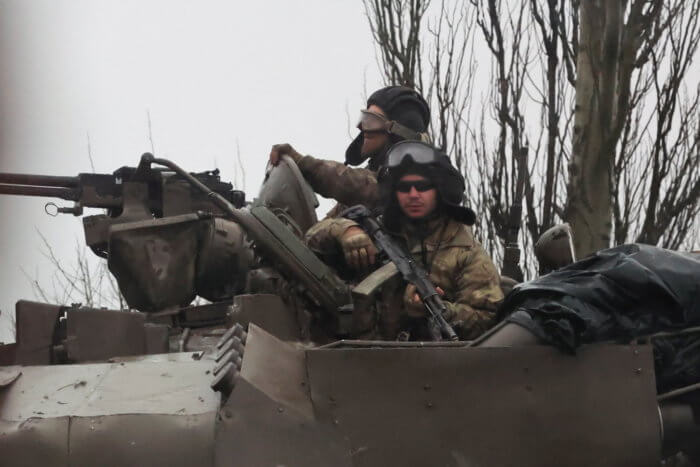
“[Putin] doesn’t care about the life of the people,” Shinter said. “He doesn’t care about his people or other people. He doesn’t care how many people die.”
Ari Kagan, who immigrated from Belarus in 1993 and represents much of southern Brooklyn’s Soviet diaspora in the City Council, condemned the invasion and said that it was “unprovoked aggression” against a peaceful neighbor.
“This is an unprovoked aggression against an independent and proud neighboring nation,” Kagan said by phone. “I strongly condemn this war by the Russian Federation and stand in solidarity with the people of Ukraine and the community of immigrants from the former Soviet Union in New York with many close relatives and friends in Ukraine.”
Councilmember Inna Vernikov, whose neighboring district also includes a large number of Ukrainian immigrants, and who herself immigrated from Ukraine at a young age, similarly condemned the invasion, and said her office will be open to assist anyone in need.
“I stand with the people of Ukraine as well as with my constituents who still have family, friends, and ties to their homeland,” Vernikov said at City Hall during the City Council’s stated meeting on Thursday. “My office stands ready to assist in any way.”
Mayor Eric Adams echoed those sentiments, highlighting the Big Apple’s large Ukrainian population, and called Russia’s actions an “assault on freedom.”
“New York City is home to the largest Ukrainian population in America and our city stands with them, and joins them in praying for those who find themselves under attack this morning,” he tweeted. “The unprovoked and unjustified invasion of their homeland is an assault on freedom.”
Much of the city’s Ukrainian diaspora, and post-Soviet immigrant population overall, is Jewish, with a significant portion of the population having left the country after the fall of Communism.
Ukraine long had one of the largest and most vibrant Jewish populations in Europe, but it declined significantly after centuries of pogroms, state discrimination, and ethnic cleansing. Nonetheless, Vernikov noted that today it is a democracy, with an elected Jewish president, and is being threatened by a dictator.
“Acting in complete and utter disregard for human suffering, Putin manufactured a crisis and is ready to spill the blood of both Russians and Ukrainians,” she said. “So many will senselessly die in this unnecessary conflict.”
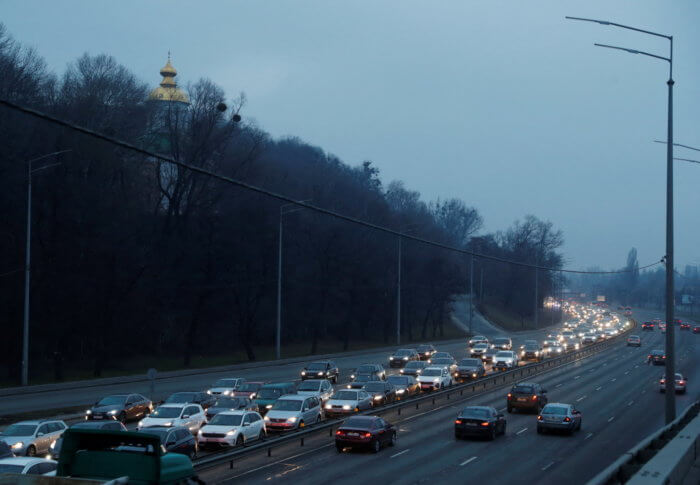
Ukraine has been in a state of flux since 2014, when Russia annexed the Crimean peninsula, and Russian-backed separatists have waged war in the eastern Donbas region ever since. But the events of the past days represent a dramatic escalation of that front as the Russian army invades the entirety of Ukraine, with the apparent aim of toppling that country’s democratic government and rebuilding a significant portion of the Soviet Empire.
“It’s a despicable, disgusting thing that’s happening. There’s no reason to do this, absolutely none,” said Artie Galpern, a Brighton Beach resident who immigrated from Ukraine in 1992, and who still has family in Kharkiv. “It was the USSR before. It fell apart for a reason. Since then, it’s been working. Why repeat the same mistake?”
The invasion has been condemned nearly-universally on the global stage, and has sparked rare mass protests in cities all across Russia.
New York City is also seeing protests over Russia’s invasion, with hundreds of demonstrators — including Ukrainians from diasporic population centers in southern Brooklyn and the East Village in Manhattan — marching from Times Square to the Upper East Side calling for an end to the war.
Demonstrators have chanted “stop the war” and “Putin is a killer,” among other things.
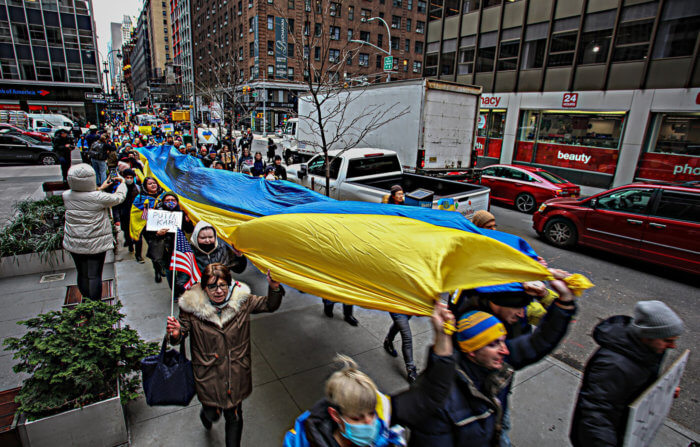
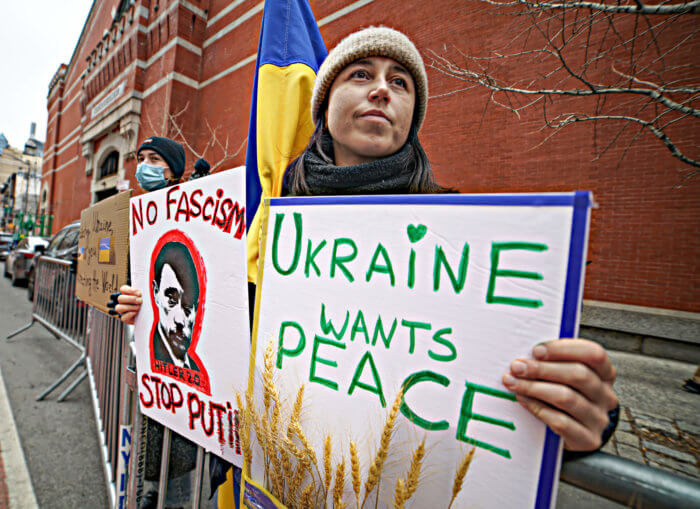
Despite all that, for the most part, life in Brooklyn’s Ukrainian communities is going on — though with a hefty dose of anxiety.
And even as the bombs rain down, with the Ukrainian government reporting dozens of initial casualties, some Brighton Beach residents trying to get their families to flee say that people there are carrying on life almost like nothing’s going on.
“Honestly, I’m more worried for them than they are. They’re all nonchalant,” said Galpern, of his family in Kharkiv. “I’m offering them to get out, I’m asking what they’re doing, if things are actually happening. They just talk about something else. People are very different there. They’re a lot more optimistic than people here.”
Additional reporting by Stephen Witt


